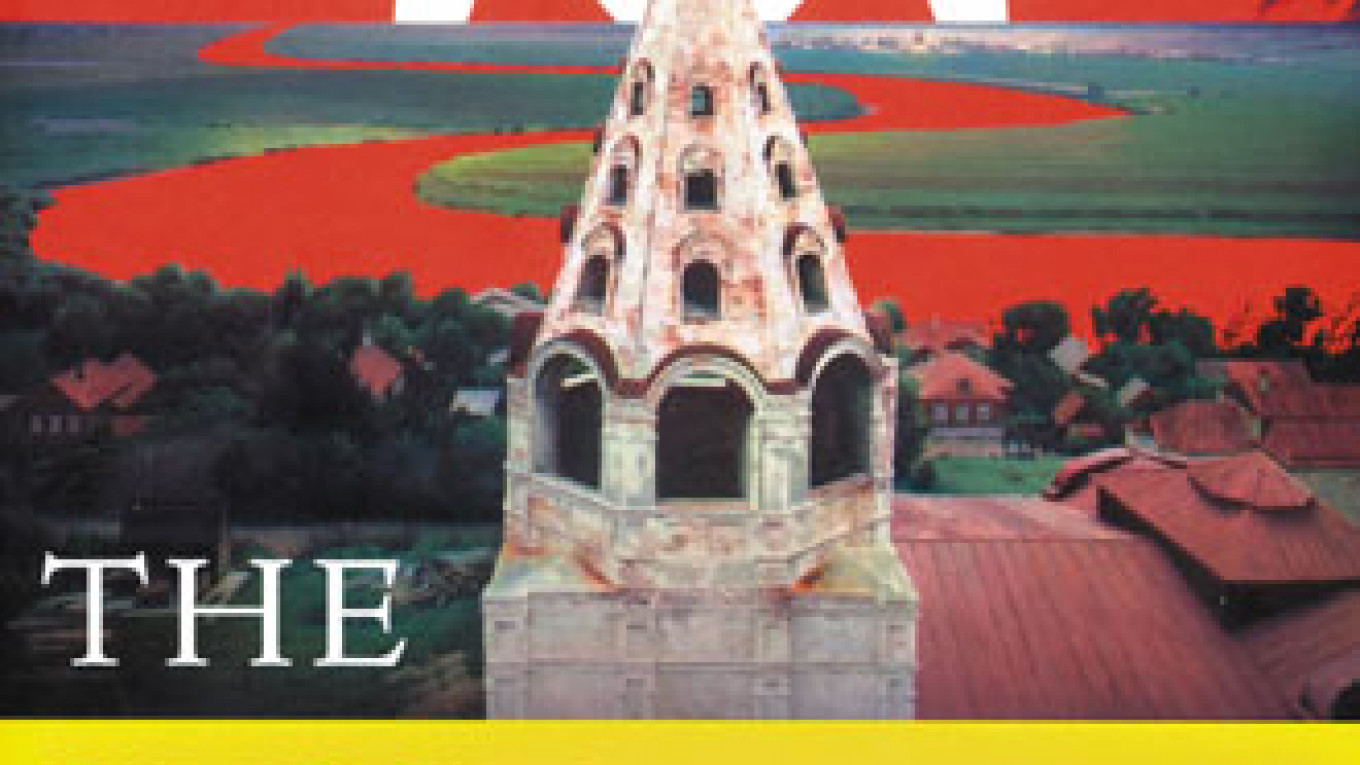"The Russia Reader" is the newest release in "The World Readers” series, which has covered countries such as Cuba, Indonesia and Brazil. A look at the cover of "The Russia Reader" reveals much of the book’s approach and structure. A Christian Orthodox steeple topped by a tiny, slanted onion dome occupies the center of the picture, speaking to the overwhelming and ambiguous influence of Orthodox Christianity on Russian life.
Behind the steeple lie a village and a vast open plain reminiscent of the Russian steppe. An undulating river, tinted in deep red, cuts through the plain and disappears into a horizon of the same color. The river all too clearly recalls Russia’s winding history, its oscillation between extremes and the blood that was spilled in its process.
The mission of "The Russia Reader" mission, as the subtitle suggests, is to capture Russia’s “History, Culture [and] Politics,” multifaceted and often paradoxical and contradictory. To this end, the editors have assembled a kaleidoscopic assortment of texts, ranging from historical analyses to literary vignettes, from propaganda speeches to eyewitness reports and from folklore to letters from the front.
Authors speak of the War of 1812, the October Revolution and the significance of mushroom hunting for the Russian soul. Tolstoy, Lenin and the eminent Russia authority Orlando Figes all get their say, as well as the peasant Anna, victim of a wholesale family deportation under Stalin’s regime.
The first chapter explores Russian “Icons and Archetypes” and introduces pervading themes of Russian history and culture, such as Moscow as the Third Rome, syntheses of opposites and suffering, love and patience.
The book is tailored to occasional and avid readers alike, with its chapters organized along a roughly chronological thread (excluding an independent three-chapter chunk on Siberia, the countryside and the Caucasus).
The vast majority of the texts are lucid and eye-opening, with Georgi Derlugian’s unsparing but balanced “Chechnya — A Brief Explanation” constituting one of the book’s absolute highlights. Only a few essays seem to force certain viewpoints, such as Susan Buck-Morss’ “A Cosmopolitan Project,” in which she argues that the significant activity of U.S. engineers and entrepreneurs in executing the first Five-Year Plan and the resulting exchange of goods and capital indicate a similarity between the U.S. and Soviet systems.
For the reader who desires to take a first dip into Russian history and culture but is overwhelmed by the vast amount of work available, "The Russia Reader" is the ideal starting point.
“The Russia Reader,” edited by Adele Barker and Bruce Grant, contains 784 pages and is published by Duke University Press Books. It sells for about $30.
Editor's note: In an earlier version of this book review, the byline for the review was incorrectly given as Viktoria Ivanyutina. This book review in fact was written by Tobias Kuehne.
A Message from The Moscow Times:
Dear readers,
We are facing unprecedented challenges. Russia's Prosecutor General's Office has designated The Moscow Times as an "undesirable" organization, criminalizing our work and putting our staff at risk of prosecution. This follows our earlier unjust labeling as a "foreign agent."
These actions are direct attempts to silence independent journalism in Russia. The authorities claim our work "discredits the decisions of the Russian leadership." We see things differently: we strive to provide accurate, unbiased reporting on Russia.
We, the journalists of The Moscow Times, refuse to be silenced. But to continue our work, we need your help.
Your support, no matter how small, makes a world of difference. If you can, please support us monthly starting from just $2. It's quick to set up, and every contribution makes a significant impact.
By supporting The Moscow Times, you're defending open, independent journalism in the face of repression. Thank you for standing with us.
Remind me later.






